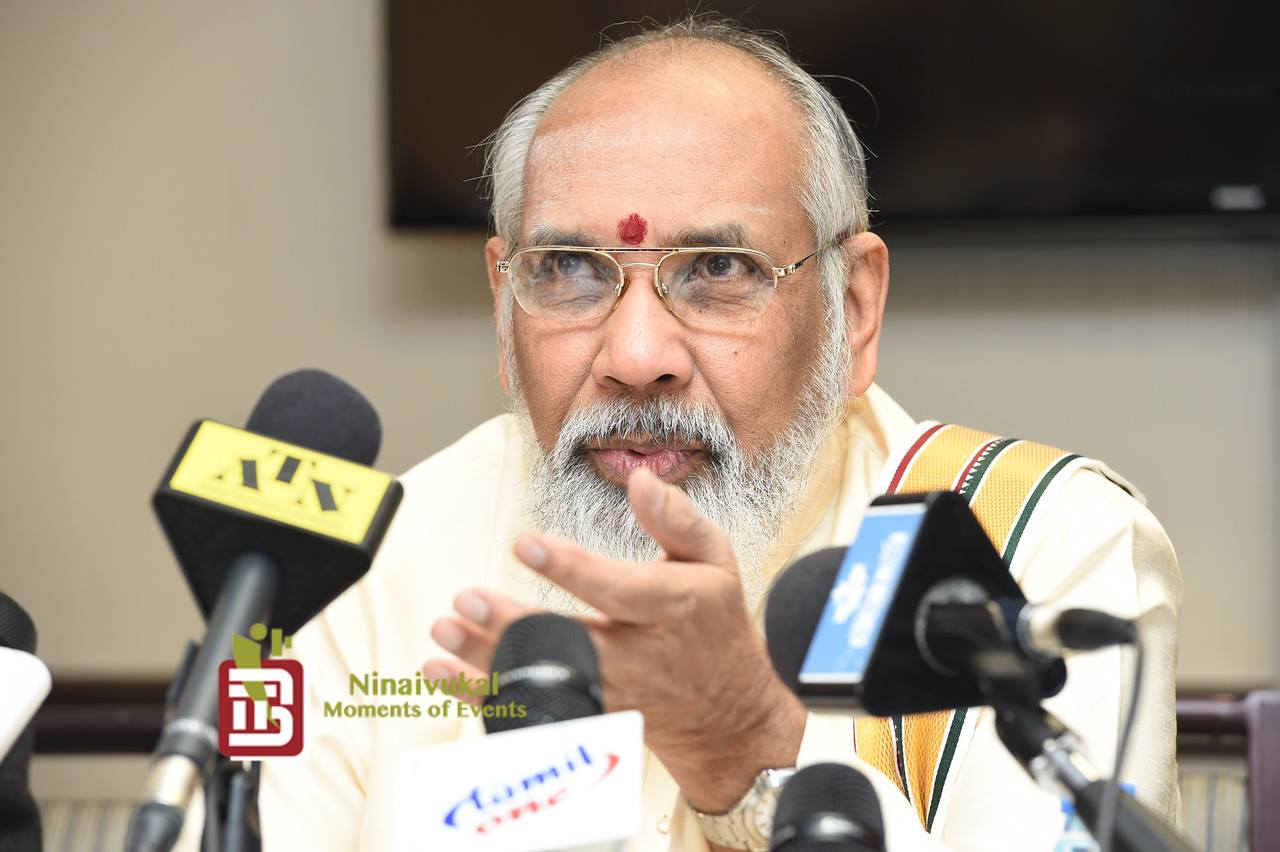During his trip to formalize the friendship agreement between the City of Markham and district of Mullaitivu, Northern Province Chief Minister C.V. Wigneswaran spoke on transitional justice and post-war development to diaspora Tamils in Toronto.
At a press conference, the CM, accompanied by strategic advisor Mr Karthikeyan, Markham Councillor Logan Kanapathi and Mr Ayyadurai from the organizing committee, spoke on several matters. The press conference was followed by a fundraiser event where the CM gave a speech to an audience of approximately 1000 community members.
On transitional justice
The CM stated that a domestic mechanism into the investigation of war crimes would not be fruitful. Referring to the report, “Authority Without Accountability: The Crisis of Impunity in Sri Lanka,” by the International Commission of Jurists, the CM spoke about the ethnic undertones of judicial decision in Sri Lanka.
He alluded to the recent Raviraj verdict where all 5 accused were found not guilty – he reinstated that a domestic judicial mechanism cannot be relied on for justice. Further, he gave the example of the collapse of the IIGEP – urging that more pressure must be put on the government to adopt the UN resolution passed in September of 2015.
In reference to Constitutional matters, the CM expressed his concern with Sinhalese politicians who have framed federalism to be a separating force in society. He stated that federalism is a mechanism to allow communities to fulfill their needs and must be framed correctly to the Sinhalese population as such.
The CM acknowledged the support extended by the government of Canada in the realm of human rights, transitional justice and federalism. He stated that the Northern Province expects Canada to play a facilitating role in such areas “almost immediately” given the approaching UN meeting in Geneva in March.

Diaspora partnerships and development
The CM’s panel stated that the friendship agreement provides a mechanism for the diaspora to use their capacity to contribute to the economic development of the North while also gaining reciprocal benefits – chiefly through investments. Furthermore, through the Board of Investment Act that the diaspora can make investments with confidence, said the CM.
Other measures such as the establishment of an economic cooperation organization and close conversation with the Minister of International Partnership and Trade have also been taken to ensure the success of such investment initiatives.
In addition, Mr Karthikeyan drew on the potential for the friendship agreement to be an opportunity to create “brain gain” in the North. Such a partnership provides a channel for knowledge and technology transfer from the diaspora to the North. He states that the agreement utilizes the broad framing of “economic and cultural initiatives” in order to encompass a wide range of possibilities.
Mr Karthikeyan further adds that a process has begun in order to carry out a comprehensive needs assessment by sector – which will also cover the different needs by demographic factors. The assessment aims to better understand the needs of the most vulnerable members of society – especially, children, women, people with special needs, those impacted by the war and those that have been displaced. In addition, the CM has set up an advisory group that includes local youth and women in order to engage in the policy process.
In respect to the tourism industry, with the financial assistance of the UNDP, the CM has identified a strategic plan for the next 5-years which is set to be presented at the end of the month. Furthermore, a tourism master plan study is being carried out in order to understand the long-term needs of the tourism industry in the North – one that is cognizant of the on the ground realities and the local socio-cultural context.
Mr Karthikeyan, who has two decades of experience in the tourism sector, stated that, “[Tourism] has linkages to all sectors of the economy, so there is a very strong possibility and opportunity for all sectors of the society to participate in the process.”
The CM adds that the international community can also pressure the Sri Lankan government to meet its commitment to the Sustainable Development Goals (SDGs). He emphasized that SDG number 16 is in consonance with the current roadmap taken by the Northern Province.
SDG number 16 aims to “promote peaceful and inclusive societies for sustainable development, provide access to justice for all and build effective, accountable and inclusive institutions all levels.”

We need your support
Sri Lanka is one of the most dangerous places in the world to be a journalist. Tamil journalists are particularly at threat, with at least 41 media workers known to have been killed by the Sri Lankan state or its paramilitaries during and after the armed conflict.
Despite the risks, our team on the ground remain committed to providing detailed and accurate reporting of developments in the Tamil homeland, across the island and around the world, as well as providing expert analysis and insight from the Tamil point of view
We need your support in keeping our journalism going. Support our work today.
For more ways to donate visit https://donate.tamilguardian.com.


